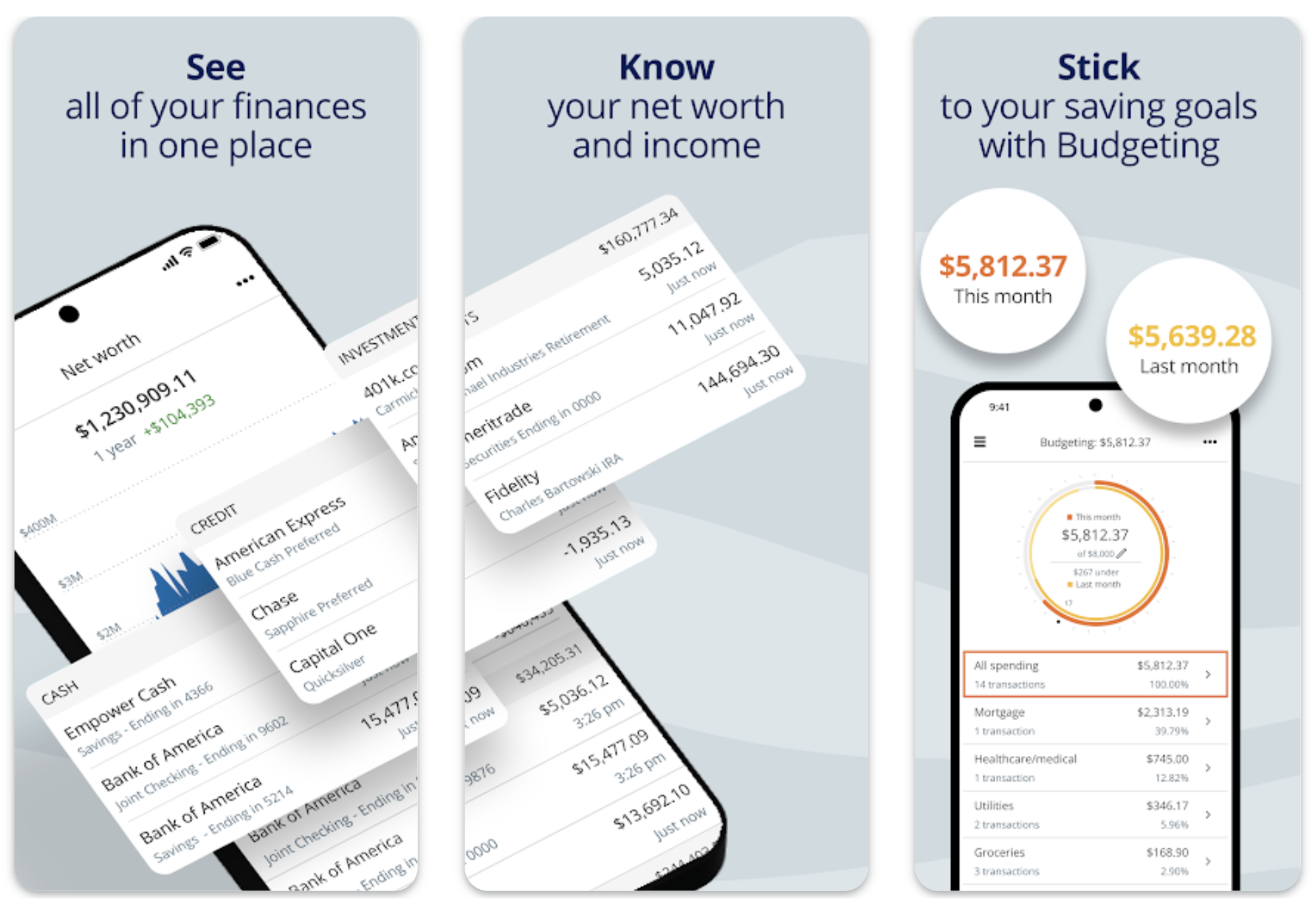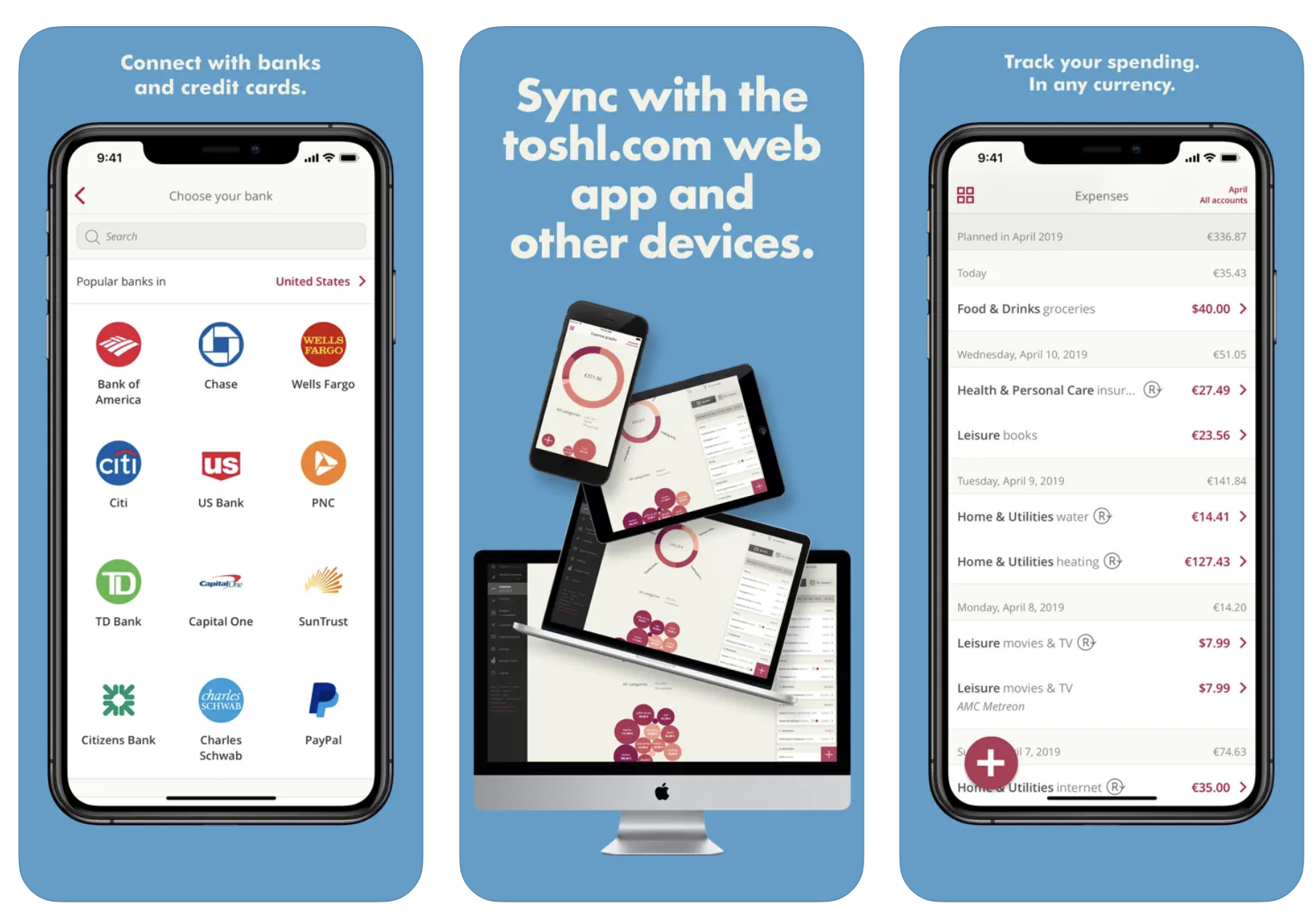
As we head into the New Year, you might be interested in creating a budget for yourself or you may be looking for a new tool to help manage your startup or small business’s budget. You may be looking to switch out your current budgeting app for a better one, or perhaps you’re someone who has traditionally relied on spreadsheets. Although spreadsheets can be a simple way to manage and track a budget, it could be worth checking out budgeting apps to save yourself some time and effort. We’ve compiled two lists of apps that we think are great budgeting tools for individuals and startups.
For individuals, a good budgeting app can help you save money by creating and sticking to a monthly budget. For startups and small businesses, a good budgeting app can help you understand your company’s financial health and make informed decisions. Whichever way you go, the best budgeting app for you will depend on your individual or business needs, so we’ve included a variety of apps to help you find one that works best for you.
Goodbudget

Image Credits: Goodbudget
Goodbudget is a good app if you’re a beginner and just getting started out with budgeting. It uses the envelope system, which is one of the original ways of managing money. Goodbudget helps ensure that you are never caught off-guard by a bill or sudden expense. Each month, you set aside money for things that you need, like groceries and gas. Once you have set aside money for your essentials, you can then choose how to use the rest based on what’s important to you.
The app is also a great option if you have a shared household, as it lets you sync your budget with another person. Goodbudget offers both a free version and a paid version, which costs $8 per month. The free version includes everything you need to manage a budget, while the paid version gives you additional capabilities, such as email support, unlimited envelopes and the ability to use the service on five devices versus just two. One possible downside is that you have to manually enter your transactions in the app, as the app doesn’t connect to your bank account.
PocketGuard

Image Credits: PocketGuard
If your main goal is to track your spending, PocketGuard might be the best app for you. PocketGuard shows you how much spendable money you have after you set aside enough for your bills, goals and necessities. The app shows you a pie chart so you can visualize which expenses are taking up the most money. You can set spending limits in the app to make sure you’re not spending beyond your means.
PocketGuard links your banks, credit cards, loans and investments in one place in order to help you keep track of your account balances, net worth and more. There’s a limited free version of the app and a paid version, which costs $8 per month and unlocks features like the ability to create your own spending categories, set a debt payoff plan, attach receipts, export transaction data and more.
Honeydue

Image Credits: Honeydue
Honeydue is a good budgeting app if you want to plan and manage your finances with your partner. The app syncs to yours and your partner’s bank accounts. Honeydue lets you manage your money together while tracking your expenses and communicating about bills. You can chat with your partner in the app and decide whether one person will be covering a bill, or if the two of you will be splitting it evenly.
The app also offers its own joint bank account. Honeydue is free to use, so it’s a good option for couples who don’t want to pay a monthly subscription. One downside is that there isn’t a desktop version of the app, so if you’re someone who likes to manage your finances on a bigger screen, Honeydue might not be the best option for you.
Empower

Image Credits: Empower
Empower is a good app if you want a tool for both budgeting and investing. The app lets you track all your accounts, including your bank and credit cards, IRAs, 401(k)s, mortgages and loans in one place. You can plan for retirement, monitor your investments and uncover hidden fees. Empower features a money-tracking dashboard that lets you track your expenses based on categories.
The service is free to use and is designed to help you manage both your day-to-day finances while also helping plan for the future. However, if your main goal is to budget your spending, Empower might not be the best option for you. You may be better off choosing a different app on this list because Empower’s budgeting tools aren’t as advanced as some of the other ones.
FreshBooks

Image Credits: FreshBooks
FreshBooks is a simple tool that can help startups and small businesses create a budget and stick to it. The service connects to your bank account or credit card to track your expenses. FreshBooks has tools for invoicing, time tracking, bookkeeping, payments and more. It lets you take receipt photos, forward email receipts to your account and import expenses from your bank account.
The service has tools for businesses at all stages, from freelancers to businesses with multiple employees. FreshBooks allows your team, clients and contractors to collaborate and share files and updates in one place. It can also integrate with over 100 apps including Dropbox, HubSpot, GSuite, Stripe and more. FreshBooks has four pricing tiers, with its business ones starting at $30 per month.
QuickBooks

Image Credits: QuickBooks
QuickBooks is a simple service that helps you get a full overview of your business’s finances by tracking your business expenses, income, profitability, taxes and more. The service helps you not only budget, but also manage the accounting tasks that are associated with your startup or business. You can see profit at a glance, pay your team, manage your money, accept payments and track and manage your time.
The service features an easy-to-navigate dashboard that lets you easily understand your business’s financial health. QuickBooks also offers tax preparation features, and gives you the ability to consult with experts to help you get ready for tax time. QuickBooks has three pricing tiers starting at $30 per month.
Toshl

Image Credits: Toshl
If you want a reasonably priced and simple, but effective, budgeting tool, Toshl may be the app for you. Although it’s marketed as a personal budgeting app, Toshl can be a good tool for new startups looking to understand and manage their finances for a fraction of the cost of budgeting apps marketed toward small businesses.
Toshl features a user-friendly intuitive experience that lets you create a budget and track expenses. If you want to budget for something in particular, you can set the budget to track only expenses with particular categories, tags or financial accounts. Budgets can be set monthly, weekly, daily or for a custom period of your choosing. The service has a free version and a paid version that costs $4.99 per month.
Xero

Image Credits: Xero
Xero is a good budgeting and finance tool for businesses and startups that are ready for growth. The service’s Budget Manager worksheet lets you create an overall budget for each of your tracking categories. There are also other tools that let you see short-term cash flow and business snapshots.
You can use Xero to send invoices and quotes, pay bills, track projects, manage expenses, accept payments and more. Xero is designed to help small businesses make decisions using trend analysis and simple reporting. In addition to financial features, Xero includes features that help with inventory and project management. The service offers three paid tiers, starting at $15 per month.





